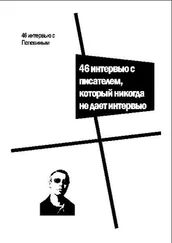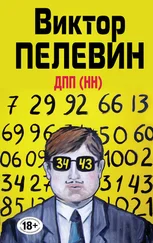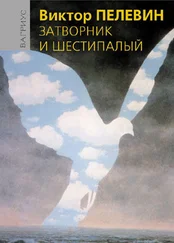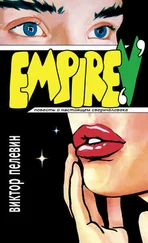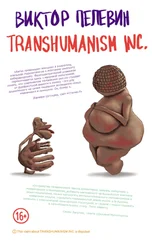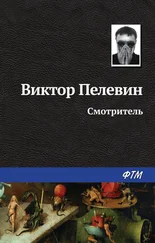Виктор Пелевин - Babylon
Здесь есть возможность читать онлайн «Виктор Пелевин - Babylon» весь текст электронной книги совершенно бесплатно (целиком полную версию без сокращений). В некоторых случаях можно слушать аудио, скачать через торрент в формате fb2 и присутствует краткое содержание. Жанр: Современная проза, на английском языке. Описание произведения, (предисловие) а так же отзывы посетителей доступны на портале библиотеки ЛибКат.
- Название:Babylon
- Автор:
- Жанр:
- Год:неизвестен
- ISBN:нет данных
- Рейтинг книги:5 / 5. Голосов: 1
-
Избранное:Добавить в избранное
- Отзывы:
-
Ваша оценка:
- 100
- 1
- 2
- 3
- 4
- 5
Babylon: краткое содержание, описание и аннотация
Предлагаем к чтению аннотацию, описание, краткое содержание или предисловие (зависит от того, что написал сам автор книги «Babylon»). Если вы не нашли необходимую информацию о книге — напишите в комментариях, мы постараемся отыскать её.
Babylon — читать онлайн бесплатно полную книгу (весь текст) целиком
Ниже представлен текст книги, разбитый по страницам. Система сохранения места последней прочитанной страницы, позволяет с удобством читать онлайн бесплатно книгу «Babylon», без необходимости каждый раз заново искать на чём Вы остановились. Поставьте закладку, и сможете в любой момент перейти на страницу, на которой закончили чтение.
Интервал:
Закладка:
When they were introduced, Tatarsky and Khanin’s other two employees exchanged folders of their work; it was a bit like the mutual positioning of dogs sniffing each other’s ass the first time they meet. Leafing through the works in Malyuta’s folder, Tatarsky several times found himself shuddering in horror. The very same future he had playfully described in his concept for Sprite (the folk-costume image of the pseudo-Slavonic aesthetic, visible ever more clearly through the dark, swirling smoke of a military coup) was present in full-blown form in these sheets typed with carbon paper. Tatarsky was particularly badly shaken by the scenario for a Harley-Davidson clip:
A street in a small Russian town. In the foreground a rather blurred, out-of-focus motorcycle, looming over the viewer. In the distance is a church; the bell is ringing. The service has only just finished and people are walking down along the street. Among the passers-by are two young men wearing red Russian shirts outside their trousers - they could be cadets from military college on holiday. Close-up: each of them is carrying a sunflower in his hands. Close-up: a mouth spitting out a husk. Close-up: foreground - the handlebars and petrol tank of the motorcycle, behind it - our heroes, gazing obsessively at the motorcycle. Close-up: fingers breaking seeds out of a sunflower. Close-up: the two heroes exchange glances, one says to the other:
‘Sergeant in our platoon was called Harley. A real bull of a man. But he took to the drink.’
‘Why’d he do that?’
‘You know. No one gives a Russian a chance these days.’
Next frame - a Hassidic Jew of massive proportions comes out of the door of a house wearing a black leather jacket and a black wide-brimmed hat. Beside him our two heroes appear skinny and puny - they involuntarily take a step backwards. The Jew gets on to the motorcycle, starts it up with a roar, and a few seconds later has disappeared from view - all that’s left is a blue haze of petrol smoke. Our two heroes exchange glances again. The one who recalled the sergeant spits out a husk and says with a sigh:
‘Just how long can the Davidsons keep riding the Harleys? Russia, awake!’
(Or: ‘World history. Harley-Davidson’. A possible softer version of the slogan: ‘The Harley motorcycle. Not to say Davidson’s.’)
At first Tatarsky decided it must be a parody, and only after reading Malyuta’s other texts did he realise that for Malyuta sunflowers and sunflower-seed husks were positive aesthetic characteristics. Having been convinced by the analytical tabloids that sunflower seeds were inseparably fused with the image of a patriot, Malyuta had cultivated his love of them as dedicatedly and resolutely as he cultivated his anti-Semitism.
The second copywriter, Seryozha, would leaf for hours at a time through Western magazines, translating advertising slogans with a dictionary, on the assumption that what worked for a vacuum cleaner in one hemisphere might well do the job for a wall-clock ticking away in the other. In his good English he would spend hours interrogating his cocaine dealer, a Pakistani by the name of Ali, about the cultural codes and passwords to which Western advertising made reference. Ali had lived for a long time in Los Angeles and even if he couldn’t provide explanations for the most obscure elements of obscurity, he could at least lie convincingly about what he didn’t understand. Perhaps it was Seryozha’s intimate familiarity with advertising theory and Western culture in general that made him think so highly of the first job Tatarsky based on the secret wow-technology imparted by commendante Che during the seance. It was an advert for a tourist firm organising tours to Acapulco. The slogan was:
WOW! ACAPULYPSE NOW!
‘Right on!’ Seryozha said curtly, and shook Tatarsky by the hand.
Tatarsky in turn was quite genuinely delighted by one of Seryozha’s early works, which the author himself regarded as a failure:
No, you’re not a sailor any more… Your friends will reproach you for your indifference. But you will only smile in reply - you never really were a sailor anyway. All your life you’ve simply been heading for this safe haven.
Malyuta never touched Western magazines - he only ever read the tabloids, or The Twilight of the Gods, always with a bookmark in one and the same place. But soon Tatarsky was astonished to notice that for all their serious differences in intellectual orientation and personal qualities, Seryozha and Malyuta were both sunk equally deeply in the bottomless pit of moutharsing. It was evident in numerous details and traits of behaviour. For instance, when they spoke to Tatarsky about a certain common acquaintance of theirs, both of them in turn described him as follows:
‘You know,’ said Seryozha, ‘in psychological terms he’s something like a novice broker who earns six hundred dollars a month, but is counting on reaching fifteen hundred by the end of the year…’
‘And then,’ added Malyuta, raising a finger, ‘when he takes his dame out to Pizza Hut and spends forty dollars on the two of them he thinks it’s a big deal.’
Immediately following this phrase Malyuta was overwhelmed by the influence of the anal wow-factor: he took out his expensive mobile phone, twirled it between his fingers and made an entirely unnecessary call.
Apart from all that, Seryozha and Malyuta actually turned out a remarkably similar product - Tatarsky realised this when he discovered two works devoted to the same item in their folders.
Two or three weeks before Tatarsky joined the staff, Khanin’s office had submitted a big order to a client. Some shady customers, who urgently needed to sell a large lot of fake runners, had ordered an advert from Khanin for Nike - that was the brand their canvas slippers were disguised to look like. The intention was to off-load the goods at the markets around Moscow, but the lot was so large that the shady characters, having mumbled a few incantations over their calculators, had decided to shell out for a television advert in order to accelerate their turnover. And the kind of ad they wanted had to be heavy stuff - ‘the kind,’ as one of them said, ‘that’ll do their heads in straight off. Khanin submitted two versions, Seryozha’s and Malyuta’s. Seryozha, who read at least ten textbooks on advertising written in English while he was working on the job, produced the following text:
The project employs an American cultural reference familiar to the Russian consumer from the mass media - that is, the mass suicide of members of the occult group Heaven’s Gate from San Diego, which was intended to allow them to make the transition to their subtle bodies so that they could travel to a comet. All those who killed themselves were lying on simple two-level bunk-beds; the video sequence was shot strictly in black and white. The faces of the deceased were covered with simple black cloth, and on their feet they were wearing black Nike runners with a white symbol, the so-called ‘swoosh’. In aesthetic terms the proposed video is based on an Internet clip devoted to the event - the picture on the television screen duplicates the screen of a computer monitor, in the centre of which well-known frames from a CNN report are repeated in sequence. At the end, when the motionless soles of the runners with the inscription ‘Nike’ have been displayed for long enough, the shot shifts to the end-board of a bed with a sheet of Whatman paper glued to it, on which a ‘swoosh’ looking like a comet has been drawn with a black felt-tip pen:
The camera moves lower, and vse see the slogan, written in the same felt-tip pen:
Читать дальшеИнтервал:
Закладка:
Похожие книги на «Babylon»
Представляем Вашему вниманию похожие книги на «Babylon» списком для выбора. Мы отобрали схожую по названию и смыслу литературу в надежде предоставить читателям больше вариантов отыскать новые, интересные, ещё непрочитанные произведения.
Обсуждение, отзывы о книге «Babylon» и просто собственные мнения читателей. Оставьте ваши комментарии, напишите, что Вы думаете о произведении, его смысле или главных героях. Укажите что конкретно понравилось, а что нет, и почему Вы так считаете.

